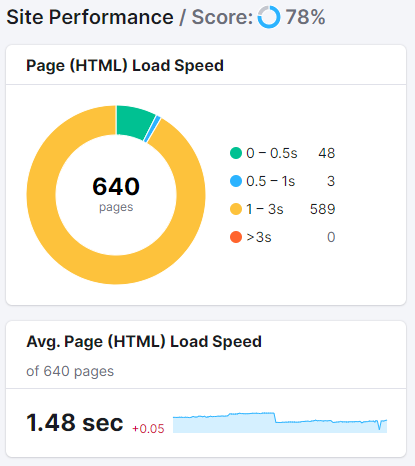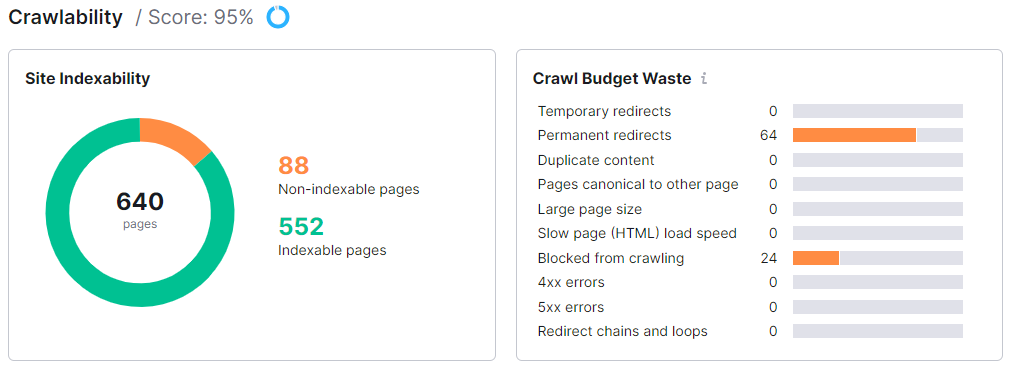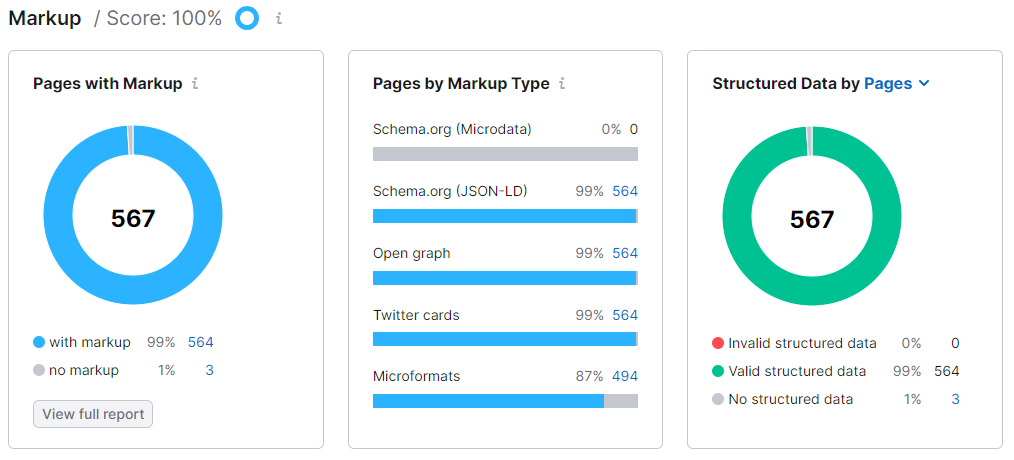At Aqueous Digital, we offer a specialist technical SEO service and website MOT.
We’ll get under the bonnet of your website and make all the necessary performance tweaks to give you a head-start on your journey to the top.
Whether its analysing metadata, schema markup, website migrations, or technical website and page optimisation, our skilled team can help.
Eager to understand the purpose of technical SEO and determine whether your website could benefit from this service?
Below, our expert experts explain what’s involved in technical SEO and why it’s important to stay on top of your website’s technical health.
Technical SEO refers to the process of making technical changes on a website to support a better user experience and improve the website’s search engine rankings.
Technical SEO covers everything from website speed and security to canonical links, indexation, user experience, accessibility, website architecture, and schema markup.
By carrying out these technical changes, you’ll be supporting the successful crawling, indexing, and rendering of website, which is vital if you want both search engines and online users to find and understand your content.
Unsure how technical SEO differs to both on-page and off-page SEO? While all three of these services are designed to improve the visibility of a website’s pages, they each cover different aspects of SEO.
Unlike technical SEO which often affects elements the typical online user can’t see, on-page SEO covers more visible aspects like content quality, keyword research, HTML tags, and internal links.
Off-page SEO refers to activities focused on improving the external authority of your website, such as link building (also known as backlinking), digital PR and marketing, and guest posting.
This contrasts with technical SEO which is carried out on-site.
As technical SEO covers a wide range of elements (including website speed, security, and accessibility), neglecting this aspect of your website can have a detrimental impact on your organic traffic, engagement, conversions, and enquiries.
Major search engines also rely upon the technical elements of a website to help them find, access, store, and display web pages. They do this using three different processes known as crawling, indexing, and rendering.
Crawling is the first stage which involves a search engine’s bots (also referred to as crawlers) finding your content. They can crawl text, images, and videos, so it’s important that this content is easily accessible for them – something technical SEO changes can support.
Next, the identified web pages will be indexed which means they’re stored and organised within the search engine’s database. Subsequently, when an online user searches a query, this will allow the search engine to quickly serve the content.
Rendering is another way that search engines can understand your website as it helps them to determine how your website is organised. They do this by accessing web pages, running site code, and analysing the site architecture.
As a result, poor technical SEO can have a significant impact on both how and when each page on your website is accessed and displayed in the SERPs (Search Engine Result Pages).
Technical SEO can be confusing to understand as it covers many different technical areas of a website. Some of the key components of technical SEO that all website owners should be aware of and actively working on improving are explained below.

Search engines tend to prioritise websites with faster page loading speed as they know online users are looking for quick answer to their queries. Not to mention, slow-loading pages encourage users to navigate away from the page, boosting the website’s bounce rates and reducing dwell time.
Page speed should therefore be constantly monitored and optimised – it can be significantly improved with image compression, the reduction of HTTP requests, and the resolution of JavaScript issues.

For pages on your website to appear in the SERPs for relevant queries, you should ensure they are both crawlable and indexable. If web pages that aren’t accessible to search engine bots, they have no chance of being found organically by online users, which will directly impact your organic traffic.

Search engines favour websites that provide reasonable measures and act, where necessary, against common cybersecurity threats.
This is because websites with poor security are more vulnerable to attacks and hackers, leading to the loss of vital financial and sensitive data from both the business and its customers.
It’s therefore crucial for both online users and search engines that website owners safeguard this information using measures like SSL (Secure Sockets Layer) encryption.

In technical SEO, schema markup refers to a type of code or standardised language in the form of microdata that search engines use to learn more about a page. It can communicate the intent of your page and how users should be viewing the page in a way that search engines can understand.
As a result, you should continually look to optimise your schema markup to ensure that search engines are receiving an accurate description of your website.
Looking to fine tune your website? Technical SEO is both a challenging and time-consuming task, so it’s crucial that only very knowledgeable and experienced SEO specialists solve issues and carry out changes.
With the majority of customers we support, we take a broader and more comprehensive approach to organic SEO, combining technical optimisation with link building, outreach and high-quality content creation.
However, if you want to focus solely on the technical aspects of SEO, we can provide this service for you.
Our technical SEO services are ideally suited to customers that need a touch more support on the technical side. This can include:
If you’d like to find out more about any of these technical SEO services available at Aqueous Digital or how we can help, please don’t hesitate to give us a call today on 0800 285 1424.
Alternatively, our friendly and professional team also welcome email enquiries sent to hello@aqueous-digital.co.uk, or you can reach out using our free consultation form.